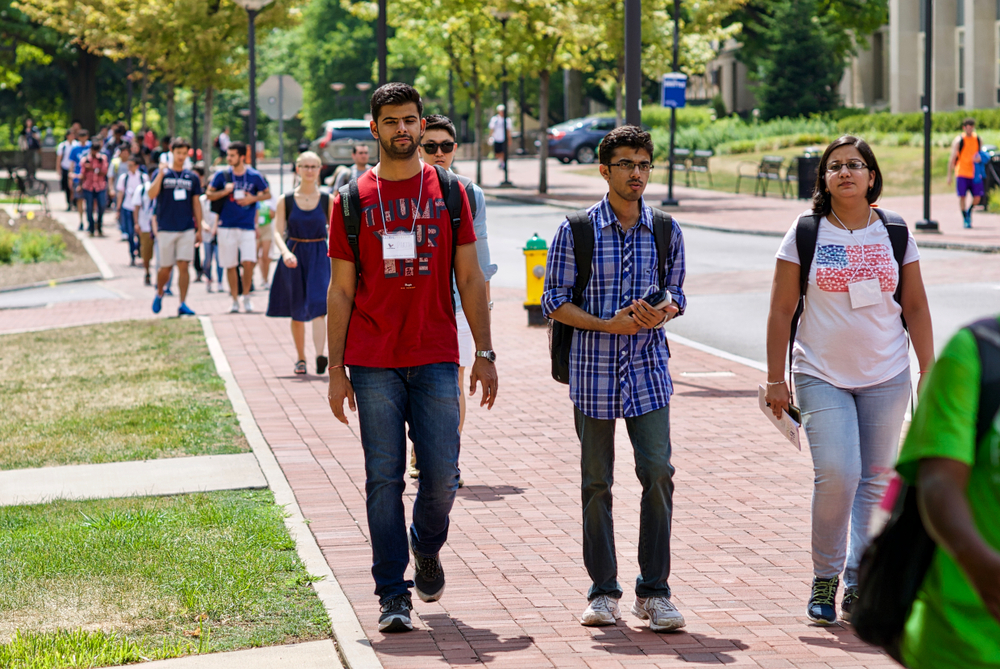What to Look for When Visiting Colleges

When it comes to making one of the most important decisions in your life, the choice of which college to attend can feel overwhelming. A college visit is one of the most critical steps in your decision-making process. It gives you the chance to experience the campus environment, meet students and faculty, and get a sense of the atmosphere that will shape your next few years. Whether you are visiting colleges in your local area or traveling to faraway places, there are several key factors you should pay attention to when you step foot on a campus. From the academic offerings to campus culture, here’s what to look for during your college visit.
The Campus Environment and Location
When you’re visiting colleges, the first thing to pay attention to is the campus environment. You want to ensure the college has the right ambiance for your personality and lifestyle. Consider whether the campus feels comfortable and welcoming, as this will be where you spend a significant amount of time. The college’s location is also crucial. If you’re visiting colleges in a small town like Waldorf, MD, colleges there will likely offer a very different experience than schools in bustling metropolitan areas. A smaller town might provide a close-knit community, while a larger city can offer diverse cultural opportunities and access to internships.
During your visit, explore the entire campus and note things such as the general upkeep of the buildings, green spaces, and public areas. These elements contribute to the overall atmosphere and may impact how you feel about spending time there. Is the campus easy to navigate, or does it feel overwhelming? Is there a lot of open space for outdoor activities, or is it more urban and dense? These questions will help you assess whether the setting aligns with your personal preferences and goals.
Academic Facilities and Offerings
Another critical factor to consider during your college visit is the academic offerings and facilities. This is the core of your college experience. Whether you’re visiting colleges like those in Waldorf, MD, or larger institutions in more urban settings, it’s important to investigate the academic resources available to you. Are the classrooms modern and well-equipped? Is there access to specialized equipment for your field of study, such as labs, art studios, or music rooms? Inquire about how the college supports its students academically, such as tutoring centers, academic advising, and opportunities for research.
During your visit, you should try to attend a class or two. This will give you a sense of the teaching style and how engaged students are with the professor. You’ll also get an inside look at the campus community through the lens of the academic experience. Make sure to ask questions about the faculty-to-student ratio, as this can give you an indication of how accessible professors will be. If the college has a specialized program or a department you’re particularly interested in, ask to meet with a faculty member or advisor to learn more about the curriculum and opportunities for involvement in the field.
Campus Culture and Student Life
Beyond academics, campus culture plays a significant role in your overall college experience. This includes the social life, extracurricular activities, and the general vibe on campus. During your visit, take the time to observe how students interact with one another. Do they seem friendly and engaged? Are there spaces for students to gather and collaborate, such as student lounges or common areas? The campus culture can significantly impact how happy and comfortable you feel in your new environment.
Get a feel for the types of extracurricular activities offered by the college. Do they have clubs or organizations related to your interests? Are there opportunities for community involvement or leadership positions? If you’re interested in sports, check out the athletic facilities and whether they match your level of interest. Even if you don’t plan to participate in sports, some students find that intramural sports or fitness centers are an important part of their campus life.
If you’re visiting colleges in a location like Waldorf, MD, colleges there may have a more relaxed or rural feel, while others in urban areas might offer a more fast-paced lifestyle. The student body’s diversity, both in terms of geography and culture, can also influence the overall campus culture. Consider whether the college is offering a community where you can truly thrive socially and personally.
Financial Aid and Affordability
One of the most important things to think about when visiting colleges is whether they are financially feasible for you. While it might not be the most exciting part of the visit, it’s essential to evaluate the cost of attendance and the availability of financial aid. When you visit a college, be sure to stop by the financial aid office to ask questions about scholarship opportunities, work-study programs, and financial aid packages.
Pay attention to the net price and whether the college offers competitive financial aid packages that can make a significant difference in your ability to afford college. This is especially important if you’re planning to attend out-of-state schools or private institutions, as tuition rates can vary widely. Keep in mind that some colleges offer merit-based scholarships or need-based assistance that can help make your dream school more affordable. Many colleges also have special programs designed to help students with financial needs, so take the time to gather information on all available options.
Additionally, it’s important to assess whether the campus offers resources like career services, internship programs, or connections with alumni that could help you in the long term. These programs can not only provide financial assistance during your time in school but also open doors for employment opportunities post-graduation, making the investment in your education even more valuable.
Safety and Support Services
The safety of a college campus is something you must prioritize when visiting. While it might not always be a topic of conversation during the official tour, it’s worth asking about the college’s safety protocols and services. Does the school have a campus police department, and how responsive are they in emergencies? Are there emergency alert systems in place to keep students informed of any threats or incidents on campus?
Additionally, consider the availability of support services. Many students face mental health challenges or other difficulties during their time in college, and it’s crucial that the campus provides the necessary resources to assist them. Ask about counseling services, mental health support, and other wellness resources available on campus. Colleges that prioritize student well-being often have dedicated programs to ensure students are not only safe but also mentally and emotionally supported.
When visiting colleges, especially in new areas or unfamiliar locations, take note of how well-lit the campus is at night and whether there are safe transportation options for getting around. For students who may need extra support due to disability or medical conditions, inquire about accessibility resources and accommodations.
Conclusion
Visiting colleges is an exciting and essential step in choosing the right place for your higher education. Pay attention to the campus environment, academic offerings, campus culture, financial aid opportunities, and safety measures during your visit. These factors will help you make an informed decision about where you want to spend the next few years of your life. Whether you’re checking out colleges in Waldorf, MD, or exploring options in larger cities, a college visit is your opportunity to get a real sense of what life will be like on that campus and how it will shape your future.
Need Personalized Tutoring Services Near You?
Here at Prep Academy Tutors of Southern Maryland, we’re committed to providing personalized, high-quality tutoring that meets your child’s unique needs. Whether you’re looking for in-person or virtual tutoring, test prep, small group sessions, or academic counseling, our certified teachers and field experts are here to help. With no contracts, a dedicated instructor all year, and the flexibility to meet at your home or a local library, we make learning convenient and effective. Plus, we collaborate with your child’s school to ensure seamless support! Contact us today to give your child the skills, confidence, and success they deserve!
